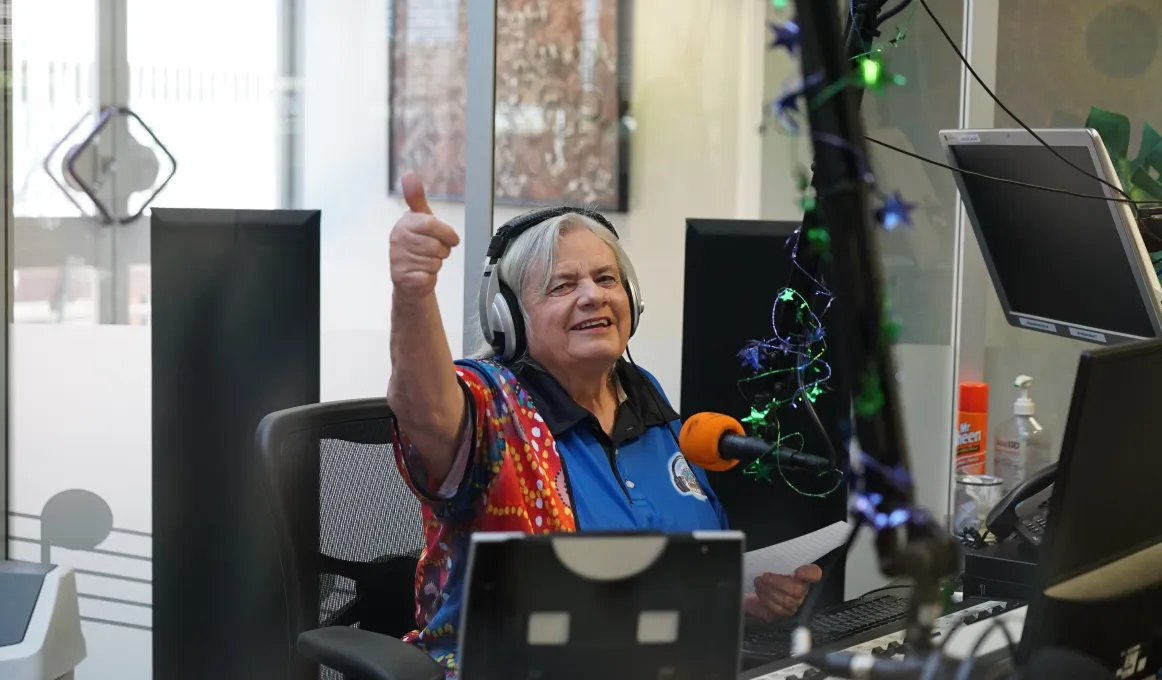30 Years on the air for TEABBA

The Top End Aboriginal Bush Broadcasting Association broadcasts to 29 remote communities across the Top End.
It’s been thirty years since the Top End Aboriginal Bush Broadcasting Association (TEABBA) first went to air. From small beginnings in Rum Jungle, 100km south of Darwin, TEABBA is now the largest remote Indigenous media organisation in the country, broadcasting to 29 remote communities across the Top End.
Robyn Regattieri, TEABBA’s Business Manager, has been with the organisation for eighteen years, and has witnessed its evolution into an important voice within the Indigenous broadcasting sector.
‘The last ten to twelve years have been particularly big for us,’ Robyn said.
‘With the new technology we’re able to use, there’s so much more opportunity to reach communities.’
TEABBA broadcasts 24/7 into 29 remote Indigenous communities, with a combination of local shows from community, and content from the Darwin studio. TEABBA also provides technical support to the Remote Indigenous Broadcasting Service (RIBS) units in the form of repairs and maintenance work, and promotes the development of local broadcasting through training and mentoring.
‘We hold training sessions here in Darwin, where we bring a whole region’s broadcasters in with their mentors,’ Robyn said.
‘We teach them how to use the radio editing equipment, and given them recorders to take back to their communities.’
TEABBA’s work is essential to the communities it reaches.
‘Radio allows people in community to keep up with everything that’s happening today, whether it be here in Darwin or in another community,’ Robyn said.
‘Not everyone has a TV, but in remote communities you’ll find a radio in the health centre, the workshop, the CDP office and other places around town.’
TEABBA is currently in the process upgrading software across the RIBS units, rolling out Wide Area Network to improve connectivity.
‘A problem we’ve consistently faced over the years is that we don’t hear about problems with equipment until someone rings up and tells us – so you’ve sometimes got communities going without radio for 2 or 3 weeks,’ Robyn said.
‘The new technology we’re installing informs us of any problems, and we’re able to remotely access computers in communities to help them fix the issue.’
Last month, TEABBA held their 30th anniversary event in Darwin, bringing together Board members, radio broadcasters, staff and friends of TEABBA for a night of entertainment and celebration of the TEABBA story so far.
‘Radio is more important than you think – it’s there every day, and everyone listens to it,’ Robyn said.
‘It’s something which needs to stay and be supported.’
Find out more
The National Indigenous Australians Agency supports TEEABA through the Culture and Capability stream of the Indigenous Advancement Strategy.
For more information, visit TEABBA.